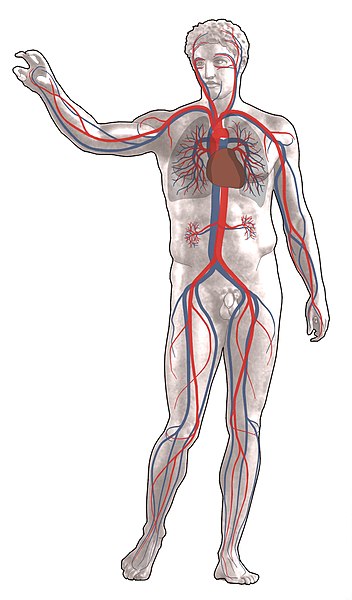The testimony of Moses in regard to the formation of woman brings to light a very interesting phenomenon, which has since been amply proved to be the result of a natural law. It is, that man may be made insensible to pain by being placed in a deep sleep. The Lord Elohim availed Himself of this law, and subjected the man He had made to its operation; and man, because he is in His likeness, is also able to influence his fellow-man in the same way. The art of applying the law is called various names, and may be practised variously. The name does not alter the thing. A man’s rib might be extracted now with as little inconvenience as Adam experienced, by throwing him into a deep sleep, which in numerous cases may be easily effected; but there our imitative ability ceases. We could not build up a woman from the rib. Greater wonders, however, than this will man do hereafter; for by “the Man Christ Jesus” will his Bride be created from the dust, in his own image after his own likeness, “to the glory of God, throughout all ages, world without end. Amen”.
When the Lord God presented the newly formed creature to her parent flesh, Adam said,
“This is now bone of my bone, and flesh of my flesh; she shall be called Ishah (or Outman), because she was taken out of Ish, or man. Therefore shall a man leave his father and his mother, and shall cleave unto his wife; and they shall be one flesh”. {a Genesis 2:21–24}
Thus, Adam pronounced upon himself the sentence that was to bind them together for weal or woe, until death should dissolve the union, and set them free for ever. This was marriage. It was based upon the great fact of her formation out of man; and consisted in Adam taking her to himself with her unconstrained consent.There was no religious ceremonial to sanctify the institution; for the Lord Himself even abstained from pronouncing the union. No human ceremony can make marriage more holy than it is in the nature of things. Superstition has made it “a sacrament”, and inconsistently enough, denied it, though “a holy sacrament”, to the very priests she has appointed to administer it. But priests and superstition have no right to meddle with the matter; they only disturb the harmony, and destroy the beauty, of God’s arrangements. A declaration in the presence of the Lord Elohim, and the consent of the woman, before religion was instituted, is the only ceremonial recorded in the case. This, I believe, is the order of things among “the Friends”, or nearly so; and, if all their peculiarities were as scriptural as this, there would be but little cause of complaint against them.
“Man”,
says the apostle,
“is the image and glory of God; but the woman is the glory of the man”;
and the reason he assigns is, because
“The man is not of the woman; but the woman of the man. Neither was the man created for the woman; but the woman for the man”. {b . 1 Corinthians 11:7–9.}
She was not formed in the image of man, though she may have been in the image of some of the Elohim.
“Man” is generic of both sexes. When, therefore, Elohim said,
“Let us make man in our image”;
and it is added,
“male and female created he them”,
it would seem that both the man and the woman were created in the image and likeness of Elohim. In this case some of the Elohim are represented by Adam’s form, and some by Eve’s. I see no reason why it should not be so. When mankind rises from the dead, they will doubtless become immortal men and women; and then, says Jesus,
“they are equal to the angels”;
on an equality with them in every respect. Adam only was in the image of Him that created him; but then, the Elohim that do the commandments of the invisible God, are the virile portion of their community: Eve was not in their image. Theirs was restricted to Adam; nevertheless, she was after the image and likeness of some of those comprehended in the pronoun “our”. Be this as it may, though not in the image, she was in the likeness of Adam; and both “very good” according to the subangelic nature they possessed.
– Thomas, D. J.; Elpis Israel: an exposition of the Kingdom of God (electronic ed., pp. 49–50). Birmingham, UK: The Christadelphian.

*
Notes:
a. Genesis 2:21–24 (ESV):
21 So the Lord God caused a deep sleep to fall upon the man, and while he slept took one of his ribs and closed up its place with flesh. 22 And the rib that the Lord God had taken from the man he made into a woman and brought her to the man. 23 Then the man said,
“This at last is bone of my bones
and flesh of my flesh;
she shall be called Woman,
because she was taken out of Man.”
24 Therefore a man shall leave his father and his mother and hold fast to his wife, and they shall become one flesh.
b. 1 Corinthians 11:7–9 (ESV)
7 For a man ought not to cover his head, since he is the image and glory of God, but woman is the glory of man. 8 For man was not made from woman, but woman from man. 9 Neither was man created for woman, but woman for man.
+
Preceding:
Man in the image and likeness of the Elohim #8 The Formation of woman #1
++
Find also
- An anarchistic reading of the Bible (2)—Creation and what follows
- Al-Fatiha [The Opening] Süra 1: 4-7 Merciful Lord of the Creation to show us the right path
- Creator and Blogger God 2 Image and likeness
- Creator and Blogger God 3 Lesson and solution
- Creator and Blogger God 5 Things to tell
- Father counterpart of the mother
- Dignified role for the woman
- Silencing Women – Of God or Men ?
- Relating to God is it possible
- The Seven Daughters of Eve
+++
Further reading:
- First Glance:Genesis 1-3
- Recap: What Every Christian Should Know About Genesis 1-4
- The Calling of Genesis 3
- First Woman
- How Many Children Did Adam Have?
- Finding Eve Among Cain And Abel
- Adam’s Problematic Princess
- Adam, Eve & Noah
- NaPoWriMo: Day 2
- Daughters of Eve, You Get To Be Free!
- Womanhood After the Order of Christ
+++
















